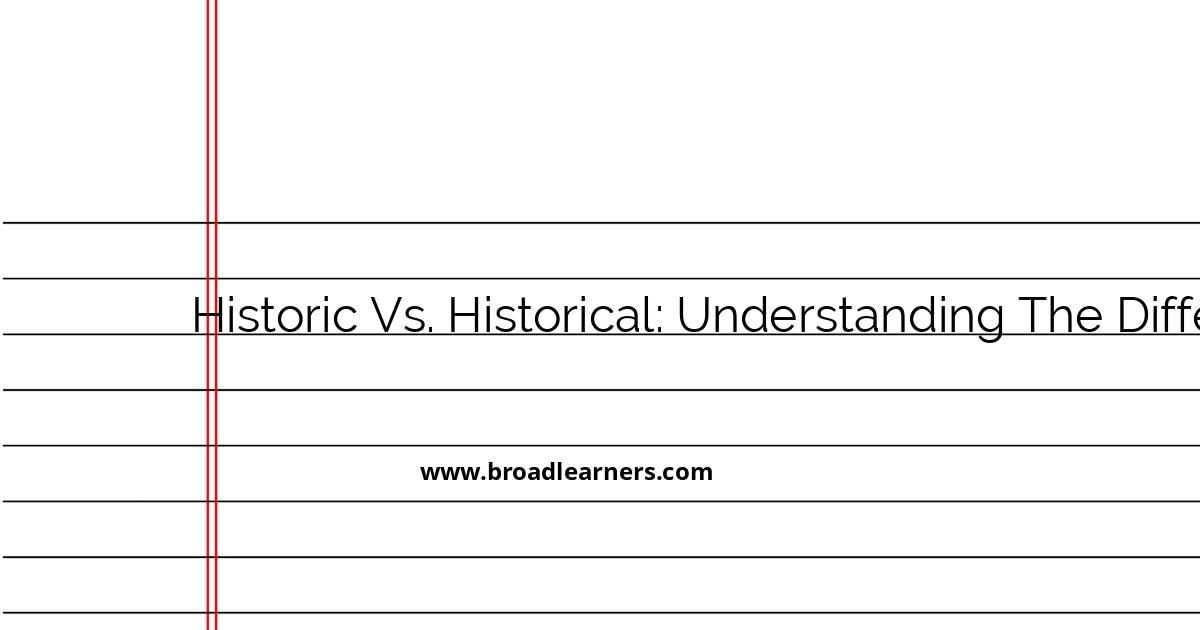In the English language, words that may seem similar often have distinct meanings. Such is the case with 'historic' and 'historical.' While both adjectives relate to the past, they are used in different contexts and carry nuances that affect their correct usage. In this article, we will explore the differences between 'historic' and 'historical' so that even a beginner-level learner can use them accurately.
- Historic
The adjective historic refers to something that is significant or important in history. When we describe something as historic, we mean that it played a role in history that was impactful or noteworthy. The use of 'historic' often implies that the event, moment, or object was groundbreaking or influential.
Examples:
- The signing of the Declaration of Independence was a historic event in American history.
This example illustrates that the signing was a momentous occasion with significant impact, pivotal in shaping United States history.
- Neil Armstrong's first steps on the moon were historic.
The word 'historic' emphasizes the groundbreaking nature of these steps, highlighting their importance in human achievement and exploration.
- The ruling was deemed historic as it changed the course of civil rights in the country.
Here, 'historic' describes a legal decision that had a transformative and substantial effect on societal norms and policies.
- The signing of the Declaration of Independence was a historic event in American history.
- Historical
On the other hand, historical is used to describe anything that pertains to history or the past, without necessarily implying significance. It refers to the existence or events of the past in a general sense.
Examples:
- She wrote a historical novel set in the 18th century.
This sentence uses 'historical' to indicate that the novel is about the past (18th century), without suggesting the book itself is of historical significance.
- The museum houses a vast collection of historical artifacts from ancient Greece.
Here, 'historical' refers to artifacts that originate from the past, specifically ancient Greece, without implying each artifact's individual importance.
- They conducted a historical analysis of economic trends over the last century.
The word 'historical' indicates an examination of past economic patterns, highlighting the temporal aspect of the data.
- She wrote a historical novel set in the 18th century.
Now that we have delved into the distinctions, let's summarize:
- Historic: Use when referring to something uniquely significant in history or had a transformative impact.
- Historical: Use when discussing anything related to past events, contexts, or studies, regardless of significance.
By understanding these differences, you can enhance your grammar skills and communicate with greater precision. Recognizing when to use 'historic' vs. 'historical' is a step towards more effective and professional writing.

Did I miss anything? Respond below